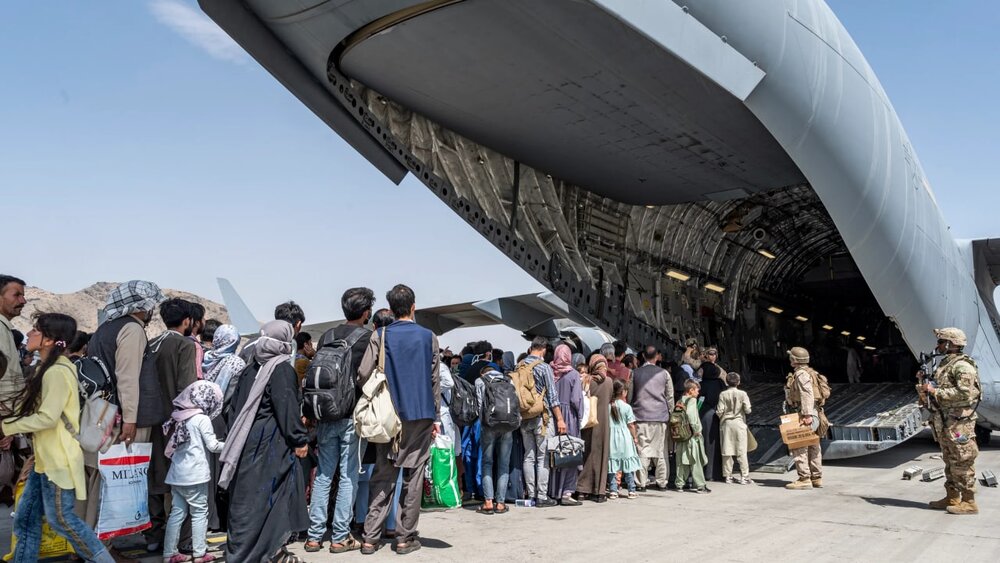The woes America left behind in Afghanistan

TEHRAN – Last year this month, Army Major General Christopher T. Donahue went down in history as the last American soldier to depart Afghanistan. He boarded a C-17 at Kabul Airport under cover of night in what has been widely seen as another Saigon moment.
After two decades of occupation, the U.S. escaped Afghanistan, leaving behind a country lacking almost every critical infrastructure needed to improve the lives of the Afghan people. While the U.S. troops were still in the midst of packing their stuff at Kabul airport, Taliban fighters easily took over Kabul, turning back the clock 20 years. The U.S. invaded Afghanistan two decades ago to overthrow the Taliban but after 20 years of occupation they handed over Kabul to its old, turbaned rulers.
Over the course of its occupation of Afghanistan, the U.S. spent billions of dollars to install an American-allied government in Kabul. Despite America’s spent blood and treasure, the Kabul government collapsed in no time and nothing was left of what Americans had long sought to nurture there.
However, the Americans had the luxury of being able to escape. This was while millions of Afghans had to grapple with a litany of problems in their own country that primarily sprang from the occupation, with no other place to flee to.
“The people of Afghanistan have always suffered from the presence of foreign forces, including the American military, in their country for the past 20 years,” Hamid Karzai, the former president of Afghanistan, said in a recent interview. “The American military presence has not only not benefited the people, but the people of Afghanistan have always suffered from the presence of foreign countries, including the United States, although these countries have also provided services during the past 20 years, which is good for this reason.”
Over the occupation years, Afghanistan has suffered from underdevelopment of infrastructure. Hassan Kazemi Qomi, the Iranian special envoy for Afghanistan, has unveiled part of that backwardness in a recent interview. “Today, the production of electricity in Afghanistan is 300 megawatts, and the distribution of electricity is between 700 and 1000 megawatts which are supplied by neighboring countries,” Kazemi Qomi said, noting that “under these circumstances, this country will not have industries and services.”
He continued, “This is what the Americans have done.”
He added, “Undoubtedly, the Americans failed in Afghanistan and this failure is due to several reasons. In the beginning, there were struggles that the Mujahideen, including the Taliban, did against them, this is a fact. The second issue, which was more important, was the issue of people's distrust of the Americans. And the third issue was the Americans' disregard for society's norms, including cultural issues and Afghanistan's national interests.”
A year after the U.S. withdrawal, Afghanistan still has to cope with the legacy of the United States war. Since last year, the U.S. has refrained from any financial assistance to the Afghan people. According to the Wall Street Journal, the Biden administration has decided not to release any of the roughly $7 billion in foreign assets held by Afghanistan’s central bank on U.S. soil and has suspended talks with the Taliban over the funds after the recent killing of al Qaeda’s leader in Kabul.
